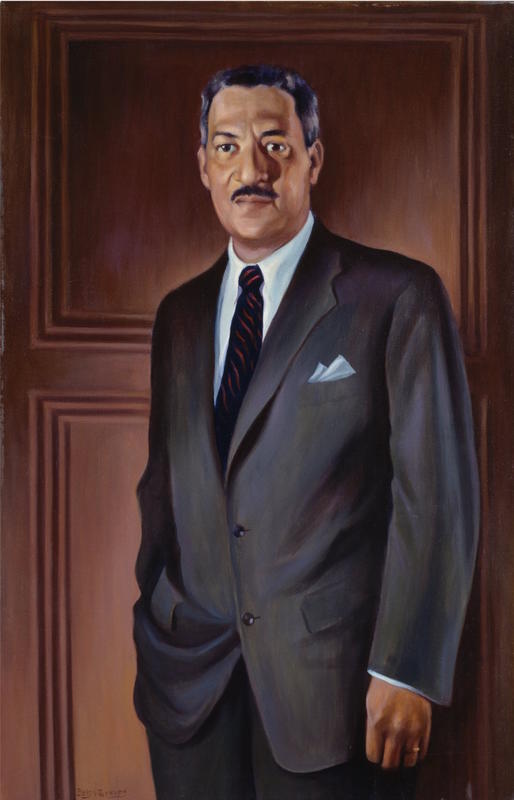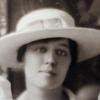More about Thurgood Marshall
- All
- Info
- Shop

Contributor
Here's Supreme Court Justice and Civil Rights hero Thurgood Marshall in all his beautiful, 6’ 2” glory.
Marshall was born on July 2, 1908 in Baltimore, Maryland to Norma Williams, a teacher, and William Marshall, a Pullman car waiter and “a steward at the exclusive, all-white Gibson Island Club on Chesapeake Bay.” Marshall’s great-grandfather was forcefully taken from the Congo to Maryland as a slave. Growing up, Marshall was a bit of a hell-raiser and as such was punished by his teachers, not with rulers or times out, but with mandatory copying of the United States Constitution. He was such a bad student that by high school, he had memorized the entire thing, which may or may not have contributed to his pursuit of law. Marshall himself described his inspiration as such: "Now you want to know how I got involved in law? I don't know. The nearest I can get is that my dad, my brother and I had the most violent arguments you ever heard about anything. I guess we argued five out of seven nights at the dinner table."
These arguments can probably go down in history as the most important familial dysfunction that ever happened for the civil rights movement. They sparked Marshall to go to college where his fellow students were Kwame Nkrumah, the future president of Ghana, Langston Hughes, the legendary poet, and Cab Calloway, a famous jazz singer. He goes on to attend law school, work as a lawyer for the NAACP for 20 years, and eventually win the Brown vs. Board of Education case in 1954, which declared segregation in schools to be unconstitutional. The New York Times described Marshall best: “he was the principal architect of the strategy of using the courts to provide what the political system would not: a definition of equality that assured Black Americans the full rights of citizenship.”
At this point it’s his name, after his paternal grandfather and adapted from Thoroughgood, that stands out as incredibly appropriate. Eleven years after this portrait was made, Marshall became the first African American to be appointed to the Supreme Court. It’s no wonder that Betsy Graves Reyneau added Marshall to the exhibition, “Portraits of Outstanding Americans of Negro Origins.” He is nothing if not outstanding.
Sources
- Greenhouse, Linda. "Thurgood Marshall, Civil Rights Hero, Dies At 84." Nytimes.com. N.p., 1993. Accessed July 19, 2018.
- O'Donnell, Michael. "Who Was Thurgood Marshall Before He Became A Judge?." The Atlantic. N.p., 2015. Accessed July 19, 2018.
- "Thurgood Marshall." Biography. N.p., 2018. Accessed July 19, 2018.
- "Thurgood Marshall | National Portrait Gallery." Npg.si.edu. N.p., 2018. Accessed July 19, 2018.












